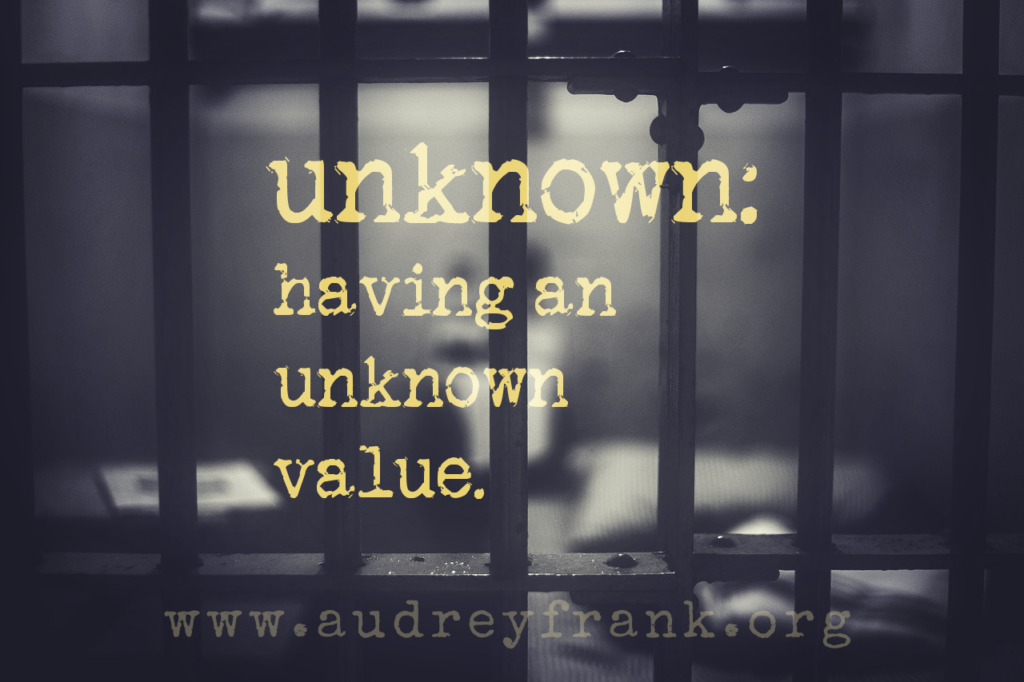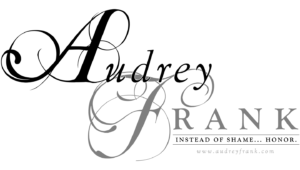unKnown
 Is being unknown such a bad thing?
Is being unknown such a bad thing?
The thought of being known can be terrifying if we don’t like what we know about ourselves. The possibility of rejection looms large and threatening, and sometimes, like during a global pandemic when we are forced to distance ourselves anyway, we wonder if being unknown might be a good thing. It’s nice not wearing makeup, working from home in pajamas, just coming as we are to life, nobody watching and judging what they perceive to know about us.
But it’s not actually being truly known that poses the problem. It’s the pain of rejection that may follow being known. So we work hard to protect and groom what is known about us.
My Muslim friends are very good at this. So are my southern relatives and neighbors. So are the teenagers I know, and even some of my friends on social media. Even me. We all fear rejection and pain.
We humans generally strive to put on a good appearance, to let what’s known about us be something admirable and acceptable. We even use this approach with God. We want to know Him; really, we do. But we think we need to clean ourselves up first, put our Sunday dresses on, make sure we sit up straight, and bow our heads. God took me to the other side of the world to show me how futile this is.
I met Imani in North Africa. The more we talked about Jesus, the more Imani changed. But it wasn’t in the way I hoped. She exchanged her western fashions for the most conservative hijab and began praying five times a day as prescribed by Islam. During the Muslim holy month of Ramadan, she even abandoned her makeup. What was going on?
Yet her eager questions about the Messiah continued. One evening as we walked home together along winding cobbled streets, she bubbled over with joy.
“I never knew these marvelous things about Jesus before! No teacher has ever explained Him like this to me!”
All this as she hugged her hijab more tightly around her shoulders against the evening chill and walked faster to make sure she didn’t miss salat al-Maghrib, the first of the evening prayers.
I’m doing something wrong here, I thought to myself.
The more I share about the Messiah, the more Muslim Imani becomes!
I was learning, and still am, about my friend’s honor-shame worldview. Her approach to God, to her own worth in His eyes, was very different from mine. But I didn’t understand that very much then. I pressed on, all the while wondering what I was doing wrong.
Muslims, and many other people besides, believe they must work for their honor before God and others. Social anthropologists call this achieved honor. How we approach honor has direct implications on how we measure our value.
In the case of my friend Imani, she was drawn to Jesus and the relationship of being known that He offered. So she did what was familiar to her in her own religion: she worked harder to show God her goodness. If she could prove her value, He might accept her. If she could get His attention with her good deeds, He might want to know her more.
I used to approach God like Imani. I spent my childhood and youth trying so hard to be good. To get His attention and make sure I was loveable. But over the years, through many disappointing efforts to be perfect, I learned that my goodness, my value, my worth, had been determined by a force outside myself. A living Person, God incarnate, Jesus the Messiah. I was created with intrinsic value by my Creator. And Jesus, through his death and resurrection, secured my value before God forever. Nothing I could do would make me matter more or less to Him.
God loved me with a crazy, limitless love for which there was no human frame of reference. Nothing compared to His unconditional love for me. As I leaned into this reality, I was free to be myself. I wouldn’t go back for anything.
My friend Imani had no such security. According to the rules of Islam, she had to prove her worth through holy behavior. And even then, there was no guarantee of salvation or God’s love in the end. Love was not a word used in reference to God in Islam. But in her heart, and every human heart, is the hope that if we are good enough, we will be loved. We will be saved.
Essentially, Imani was trying to show God who she was: a good, righteous person. As if He who made her did not know her.
This is the sad belief of so many friends I know, far beyond the boundaries of Islam:
I am unKnown. Nameless. Undiscovered, unfamiliar. Unrecognized, having an unknown value. To God. And to others.
My value as a follower of Jesus was, ironically, based on the very fact I was known by God.
I summon you by name and bestow on you a title of honor. -Isaiah 45:4
God knew exactly who I was when He called me by name, with all my embarrassing failures, my prideful success, my strengths, my weaknesses; everything. Nothing about me is unknown to Him; most of all, my value. Because He deems me valuable beyond measure, He gave His life for me. And now, through Jesus Christ, I’ve received a title of honor I did not work for nor deserve. I am known and yet loved by God!
Here’s the twist: the good news of salvation for Imani, me, and you is not just that we are known by God. It is that we finally, gloriously, relief pouring over us like spring rain, know that we are known by Him.
It has never been true that you and I are unKnown, with an unknown value. #youmatter #encouragement #TheTruth4Women Share on XWe are KNOWN! And yet accepted. Loved. Cherished. Helped. Understood. Welcomed.
Goodbye, rejection.
If you do not have this security today, pray with me.
Lord, can it be that You know me? I want to know that You know me. I will take your hand and trust you now, Jesus. Show me that you know me today. Amen.
To learn more about Imani’s story, grab a copy of Covered Glory: The Face of Honor and Shame in the Muslim World here.
It is a truth universally acknowledged that humanity often finds lies easier to believe than truth.
—Audrey Frank
Some of those lies seem to be written on hearts in permanent ink, graffitied in different languages across cultures and continents, yet all meaning the same. unWorthy. unLoveable. unSeen. unHeard. unKnown. unClean. unDefended.
At The Truth Collective, we are seeking to uncover the lies and help people believe what is True. We are proud to unveil our latest project, the unGallery, premiering in Charlotte, NC, October 10-11. Global artists have contributed exquisite expressions of the lies we often believe, and the Truth that sets us free. I hope you will join us by reserving your space here. Be sure to use the code AudreyFrank for a 30% discount.
Over the next few weeks, I will be unpacking these unTruths at our weekly storytime. Join me as we uncover lies and believe truth together.

No Comments